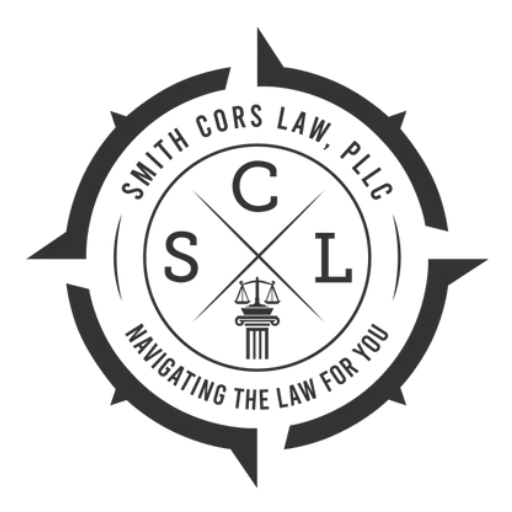Dealing with Debts and Creditors in Florida Estate Administration: What Families Need to Know
After a loved one’s death, survivors may discover outstanding debts, credit cards, or unpaid medical bills. Understanding how Florida law manages these claims is crucial for both personal representatives (executors) and beneficiaries. Properly handling debts can prevent unnecessary legal disputes and ensure the estate’s assets are distributed according to the decedent’s wishes. This article explores Florida’s creditor claims process, what families need to know about liability, and how to handle potential disputes during probate.
1. Overview of Estate Administration in Florida
Florida’s estate administration process—often referred to as probate—oversees the orderly distribution of a decedent’s assets and the payment of valid debts. A personal representative (PR) is appointed by the court to manage this process, which typically involves:
Identifying all estate property
Paying or disputing debts and taxes
Distributing remaining assets to beneficiaries
Probate can be formal administration or summary administration, depending on the estate’s size and complexity. In both scenarios, addressing creditor claims is a crucial step.
2. Which Debts Survive Death?
Contrary to popular belief, not all debts are automatically forgiven when someone passes away. While personal liabilities (like specific medical bills) may end with the person’s death, many financial obligations remain enforceable against the decedent’s estate. Common examples include:
Outstanding credit card balances
Mortgages or home equity loans
Car loans
Unpaid medical bills
Contractual obligations (if estate-held assets are involved)
Certain joint debts—like those in both spouses’ names—might pass to the surviving co-owner. If the decedent was the sole debtor, the responsibility shifts to the estate.
3. Initiating the Creditor Claims Process
Once appointed, the PR must evaluate the estate’s financial standing. This entails:
Gathering Financial Records: Bank statements, credit card statements, loan agreements, and any bills in the decedent’s name.
Reviewing Potential Debts: Check for recurring charges or unpaid invoices the decedent might have left behind.
Organizing Accounts: Separate the decedent’s accounts from any business or trust accounts to avoid confusion.
4. Notice to Creditors: Publication Requirements and Deadlines
Florida law (Chapter 733, Florida Statutes) requires the PR to provide a Notice to Creditors. This typically involves:
Publication in a Local Newspaper: Creditor claims must be published for two consecutive weeks, informing unknown creditors they have a limited time—usually three months—to file claims.
Service on Known Creditors: Known or reasonably ascertainable creditors must receive direct written notice.
Deadline for Claims: If a creditor fails to file within the allowed timeframe, the claim may be barred.
This process ensures fairness to both creditors and beneficiaries. It also prevents indefinite claims from emerging years after the estate closes.
5. Priority of Claims Under Florida Law
If multiple valid claims exist and the estate lacks sufficient funds to cover them all, Florida assigns priority levels to debts. Generally, estate administrative costs and funeral expenses take precedence, followed by secured debts (such as mortgages), and then unsecured claims. Understanding this hierarchy helps the PR distribute funds correctly and avoid personal liability.
Common Priority Breakdown:
Administrative expenses (court costs, PR fees, attorney fees)
Funeral expenses (within reasonable limits)
Secured debts (mortgages tied to specific property)
Unsecured debts (credit cards, medical bills)
Other claims, as outlined by statute
6. Disputing or Negotiating Creditor Claims
Not all creditor claims are valid or accurate. The PR has the right to challenge questionable debts if there’s reason to believe:
The claim is already paid.
The debt is incorrectly attributed to the decedent.
The amount is inflated or based on hidden fees.
Negotiation is also possible. Some creditors prefer partial settlements over drawn-out probate or contested claims. However, it’s essential to document all decisions and keep consistent communication with the probate court to ensure transparency.
7. Potential Pitfalls and Common Misconceptions
Paying Creditors Too Soon: Some PRs rush to settle bills without verifying the claim or fulfilling notice requirements, risking personal liability if higher-priority claims remain unpaid.
Ignoring Creditor Notices: Failing to respond can lead to default judgments against the estate.
Assuming Personal Responsibility: Unless you co-signed or guaranteed the debt, you’re not personally liable—debts belong to the estate. Still, improper handling might expose you to liability as a PR professional.
Confusing Joint Debts with Estate Debts: Clarify if the surviving spouse or co-owner is responsible, or if the estate must handle it.
8. Tips for Personal Representatives
Consult an Attorney: The interplay of probate statutes, creditor deadlines, and estate distribution can be intricate. Legal guidance helps avoid missteps.
Maintain Clear Records: Keep detailed logs of any claim notices, payments, or disputes. This record is crucial if a creditor challenges your decisions.
Stay Organized: Estate administration can take months or longer. Proper organization ensures you don’t miss deadlines or misplace essential documents.
Communicate with Beneficiaries: Beneficiaries often have questions about why certain debts are being paid. Transparency reduces conflict.
9. When to Seek Professional Help
Complex Debts: If the decedent had substantial business or tax liabilities, specialized counsel might be necessary.
Disputed Claims: Creditors alleging large sums or questionable fees can lead to probate litigation if not managed correctly.
Multiple Jurisdictions: If the decedent owned property outside Florida, additional rules might apply, requiring attorneys experienced in ancillary probate.
Sometimes, families discover a confusing web of obligations or stale accounts. An attorney can expedite verification, negotiate valid claims, and close out the estate with minimal risk.
10. Conclusion and Disclaimer
Paying debts and handling creditor claims is a core responsibility in Florida’s probate process. Identifying legitimate obligations, meeting publication requirements, and adhering to statutory deadlines are all essential steps to protect the estate and its beneficiaries. Personal representatives who follow these guidelines can fulfill their roles effectively while mitigating potential legal challenges.
If you find yourself named as a personal representative or seeking clarity on how to address debts in a loved one’s estate, consult an experienced Florida attorney. They can guide you in complying with state laws, negotiating with creditors, and ensuring all debts are handled in the correct order.
Disclaimer: This content is for informational purposes only and does not constitute legal advice. No attorney-client relationship is formed by reading this material. For specific guidance regarding your situation, please contact a licensed Florida attorney. No aspect of this content has been approved by the Supreme Court of Florida.





